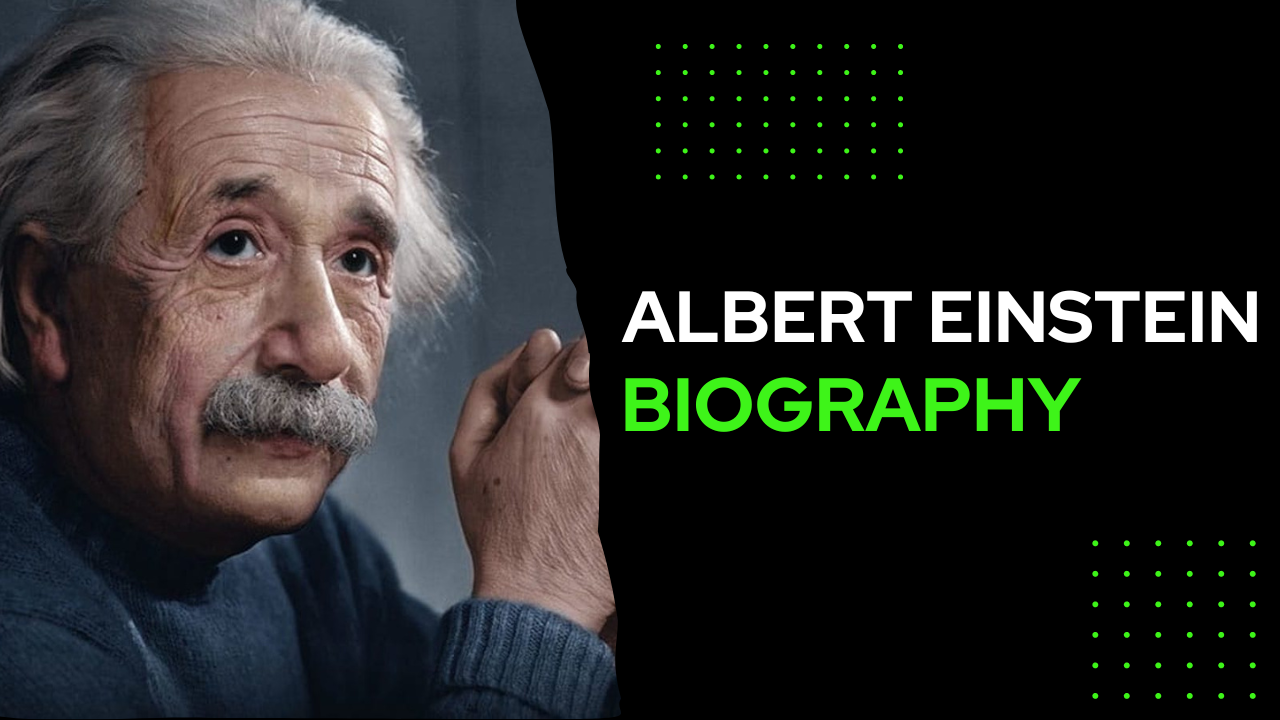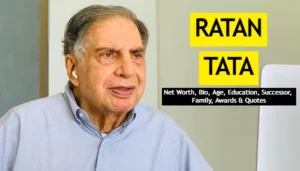In this captivating biography of Albert Einstein, we explore the incredible life and intellectual journey of one of history’s greatest scientific minds. Join us as we delve into the personal and professional milestones of Albert Einstein, tracing his path from a curious young boy to an iconic figure who reshaped our understanding of the universe.

Early Life and Education
From Humble Beginnings to Curiosity Unleashed:
The biography of Albert Einstein begins on March 14, 1879, in Ulm, Germany. From an early age, his inquisitive nature and passion for knowledge were apparent. With a deep fascination for mathematics and physics, young Einstein continuously questioned conventional wisdom, setting the stage for his remarkable journey.
Academic Pursuits:
Einstein’s academic pursuits led him to the Swiss Federal Polytechnic in Zurich in 1895. Immersed in the world of science, he devoured the works of scientific luminaries such as Isaac Newton and James Clerk Maxwell. The foundations of Einstein’s revolutionary thinking were laid during his formative years.
The Annus Mirabilis and the Theory of Relativity
The Miracle Year:
In 1905, Einstein experienced his “Annus Mirabilis” or “Miracle Year.” It was during this transformative period that he published four groundbreaking scientific papers. These papers, covering diverse topics such as the photoelectric effect and Brownian motion, introduced his most revolutionary concept: the special theory of relativity.
The Theory of Relativity:
Einstein’s theory of relativity challenged Newtonian physics and introduced a new understanding of space, time, and gravity. The equation E=mc², which encapsulated the relationship between energy and mass, became one of the most famous formulas in history. Einstein’s revolutionary ideas laid the foundation for modern physics and earned him worldwide acclaim.
Humanitarianism and Social Activism
Advocacy for Peace:
Beyond his scientific endeavors, Albert Einstein was deeply concerned about social and political issues. He advocated for peace and played an active role in promoting disarmament. Einstein believed in the power of education and international cooperation to create a better world, and he never shied away from expressing his views.
Civil Rights Activism:
Einstein was a vocal supporter of civil rights and fought against racism and discrimination. He denounced segregation in the United States and worked alongside civil rights leaders such as W.E.B. Du Bois. Einstein’s unwavering commitment to justice and equality left an indelible mark on the world beyond the realm of science.
Later Years and Enduring Legacy
Academic Achievements and Awards:
In his later years, Einstein continued his scientific endeavors and held prestigious academic positions. His remarkable contributions earned him numerous awards, including the Nobel Prize in Physics in 1921 for his work on the photoelectric effect. Einstein’s accomplishments solidified his status as an intellectual giant.
- Barnard Medal (1920)
- Nobel Prize in Physics (1921)
- Matteucci Medal (1921)
- ForMemRS (1921)
- Copley Medal (1925)
- Gold Medal (1926)
- Max Planck Medal (1929)
- Benjamin Franklin Medal (1935)
- Member of the National Academy of Sciences (1942)
- Time Person of the Century (1999)
Inspiring Future Generations:
Albert Einstein’s legacy transcends his scientific achievements. His ideas continue to shape modern research in fields like nuclear energy, astrophysics, and quantum mechanics. Einstein’s unwavering pursuit of knowledge, boundless imagination, and willingness to challenge the status quo inspire generations to push the boundaries of human understanding.
Albert Einstein: Important Works
His important works include:
- Special Theory of Relativity (1905),
- Relativity (English translations, 1920 and 1950),
- General Theory of Relativity (1916),
- Investigations on Theory of Brownian Movement (1926), and
- The Evolution of Physics (1938).
Non-scientific works are:
- About Zionism (1930),
- Why War? (1933),
- My Philosophy (1934), and
- Out of My Later Years (1950)
Albert Einstein, born on this day, met fellow Nobel Prize laureate Rabindranath Tagore at his home in Germany on 14 July 1930. The two minds explored the concepts of science, religion and philosophy.
Read an excerpt from their conversation: https://t.co/h638caaAYZ#Einstein144 pic.twitter.com/GeCjDSX8A0
— The Nobel Prize (@NobelPrize) March 14, 2023
Conclusion:
The biography of Albert Einstein is a testament to the power of curiosity, imagination, and perseverance. From his humble beginnings to his revolutionary theories, Einstein’s life serves as an inspiration for all who dare to explore the unknown. His pursuit of scientific truth and his unwavering commitment to social justice ensure that Albert Einstein will forever be remembered as a visionary who reshaped our understanding of the universe and the world we inhabit.
| Biography Related Post | |
| Riva Arora | Blackpink members |
| Nagma Mirajkar | Ankita Lokhande |
| Jannat Zubair | Priyanka Mongia |
| Hande Erçel (Hayat) | Sofia Ansari |













